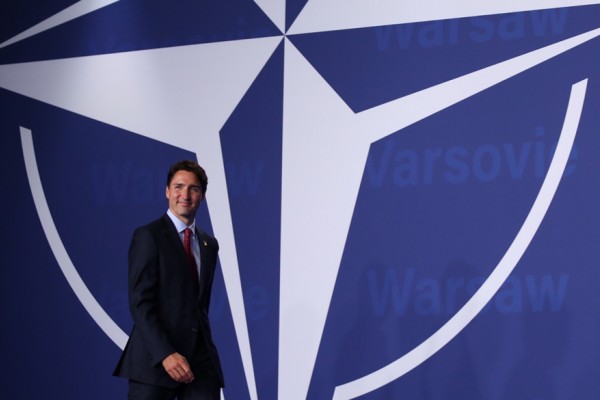-

Unions must stand united to end Canada’s arms sales to Saudi Arabia
Unifor’s call for a full weapons ban and embargo on Israel should be followed by a call for the Government of Canada to immediately end arms exports to Saudi Arabia. Labour can and must do its part to stop the flow of arms to Saudi Arabia. Our movement’s commitment to peace, human rights, and solidarity with working people everywhere, demands it. We look forward to hearing from you.
-

Will there be resource wars in a renewable future?
It’s tempting to conclude that the days when competition over finite supplies of energy was a recurring source of conflict will soon draw to a close. Unfortunately, think again: while the sun and wind are indeed infinitely renewable, the materials needed to convert those resources into electricity—minerals like cobalt, copper, lithium, nickel, and the rare-earth elements, or REEs—are anything but.
-

It’s time for Canada to end arms sales to Israel
It is time for Canada’s unions and the national labour movement to call on the Government of Canada to suspend bilateral trade of all arms and related materials with the State of Israel until it complies with international law and Palestinian rights are upheld. Our movement’s commitment to peace, human rights and international solidarity demands it.
-

How Canada should respond to Israel’s escalating violence
NDP leader Jagmeet Singh’s recent call for an arms embargo on Israel is a welcome development. A halt to weapons deliveries is one way to pressure Israel, whose military has killed about 100 Palestinians, including 20 children, in recent days. While less discussed, however, there are even simpler ways to curtail direct Canadian involvement in Israeli violence against Palestinians.
-

The unraveling of the American empire
The defeat of the United States in Afghanistan is one in a string of catastrophic military blunders that herald the death of the American empire. Yes this defeat is a familiar and sad story. The tragedy, however, is not the collapse of the American empire, but that, lacking the ability to engage in self-critique and self-correction, as it dies it will lash out in a blind, inchoate fury at innocents at home and abroad.
-

To end military sexual violence, defund the CAF
From politicians to establishment feminists to even progressive media outlets, the solution to sexual violence in the Canadian Armed Forces has been consistently posited as a “fundamental culture shift.” But how do you shift a culture that is at its core predicated on the exclusive right to carry out state-sponsored violence?
-

Where does the NDP really stand on NATO?
Does the NDP want Canada to ratchet up tensions with Russia? This seems to be the notion at the heart of a recent statement by the party’s Deputy Foreign Affairs Critic Heather McPherson, who said the Canadian government ought to promote Ukraine’s membership in NATO, and that Ottawa should expand its military presence in the Eastern European nation.
-

Why Canada should leave NATO
By all accounts, NATO is a bad influence on Canada, and the alliance has proven to strengthen the worst tendencies of our political culture. Not only does it heighten pressure on the federal government to boost socially and ecologically damaging military spending, NATO has drawn Canada into various deadly foreign expeditions while continuing to prevent this country from pursuing an independent foreign policy.
-
Why the NDP needs a new defence critic
What should progressive Canadians expect from the defence critic representing the country’s only left wing party? An easy answer might be legitimate criticism of cost overruns within the military, or the army’s participation in dubious combat operations at the behest of our southern neighbour. Yet, in the case of the New Democratic Party, this doesn’t seem to be the case.
-

Canada’s aid to Yemen is just a humanitarian band-aid
Beyond specific campaigns, we need social movements and political parties to challenge Canada’s destructive arms economy and the upward flow of wealth spurred by intellectual property rights accords and other forms of exploitation. We need urgently to build a peaceful, fair world where aid is given—not to maintain existing conditions, but to upend them completely.




